Romania: rules of entry and residence in 2024. What does a Ukrainian need to know?
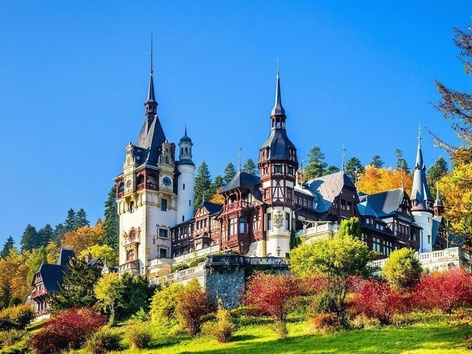
Romania has hosted thousands of Ukrainian citizens since the beginning of the war, and the country's doors are still open to refugees from Ukraine. However, two years later, the rules for Ukrainians in Romania have changed slightly. Find out all the latest information on how to apply for temporary protection and enjoy other benefits
Romania has been hosting refugees from Ukraine since the first days of the full-scale invasion. The country has approved a number of refugee support programmes and introduced social assistance. We have collected information on the rules for moving to Romania and how to apply for protection in this article.
Entry rules
From Ukraine, you can enter Romania through the border crossing points of Halmeu, Sighetu Marmatiei, Siret, Isaccea, and through the border crossing points between Moldova and Romania. You can follow the situation at the border crossing points in real time here.
If you are travelling to Romania by car, you need to purchase a Green Card for travelling abroad. You can apply for the policy here.
Citizens of Ukraine can enter the territory of Romania by presenting a biometric or regular passport. Children need to have an identity document or birth certificate. If the child is travelling with one of the parents, the other parent's permission is not required to cross the border. Ukrainian men between the ages of 18 and 60 can enter the territory of Romania only if they belong to the categories of persons who have the right to leave Ukraine.
Where to apply for protection?
Ukrainians who arrive in Romania have the right to apply for three types of protection:
Temporary protection is a pan-European programme that is currently available until March 2025. Ukrainians who resided in Ukraine until 24.02.2022 are eligible for it. After obtaining protection, you will receive a residence permit in Romania, access to the labour market, free medical care, the right to education for children, social support, as well as the opportunity to receive financial assistance in case of lack of necessary funds for living. To apply for the status, you should contact the General Inspectorate for Immigration or the authorities located in temporary accommodation and humanitarian aid camps.
A short-term stay is issued on the basis of a Ukrainian passport at the border crossing. All Ukrainians are eligible for registration, with the exception of men liable for military service aged 18 to 60. Short-term stay is granted for up to 90 days in 180 days, unless a person is granted a residence permit or temporary protection. In temporary accommodation camps, a person can receive humanitarian aid, such as food, clothing, and hygiene products. The status also allows for medical care, access to work, education, and assistance in finding housing.
Asylum seeker - this status is applied for to extend the right to short-term stay. The application can be submitted directly at the border or later, but before the expiry of your visa. During the application process, you need to fill in the application form and submit all the documents you have to the General Inspectorate for Immigration. The application is processed within one to two months.
Visit Ukraine on social media: Telegram | YouTube | Instagram | Facebook | Twitter | TikTok
Finding accommodation
Ukrainians can reside in one of the six regional asylum centres managed by the General Immigration Inspectorate.
Romanians also help Ukrainians and host refugees in their homes. A special platform, Un Acoperiș (Roof), has been created to help find accommodation. It registers legal entities and individuals who can provide rooms and houses for people living in shelters provided by the Romanian authorities.
You can find accommodation on your own at ukrainenow.org and icanhelp.host. The average cost of renting a one-room apartment in Romania is from UAH 6,000, and a three-room apartment - from UAH 10,000. Utilities cost about UAH 3,000. In Bucharest, rental prices are much higher.
Financial assistance
Romania has a financial support programme for Ukrainians. The recipient is paid 750 lei (about 150 euros) per month per person and 2000 lei (402 euros) per month per family.
An additional 600 lei (120 euros) per person was also provided for food. This assistance was provided for 4 months. In order to receive the assistance after that, adults had to be registered as unemployed or have a job, and children had to be enrolled in school.
For more information, please follow the link or visit the website of the assistance to Ukrainians in Romania.
Please note that in order to receive financial support, you need to have a bank account, which we have described earlier.
Medical services
Based on the status of temporary protection or short-term stay, Ukrainians have the right to receive medical care in Romania - primary medical care and treatment, emergency medical care, inpatient treatment, treatment of acute and chronic diseases.
Please also note that if you are planning a trip abroad, you should take care of your insurance policy, as it is a guarantee of your safety and peaceful stay outside Ukraine. Visit Ukraine recommends taking out health insurance in advance to avoid any troubles abroad and to be calm for yourself and your loved ones.
Where to find a job?
You can look for a job in Romania with the help of the National Employment Agency, for which you need to register with its territorial structure.
There is also a job search platform Jobs4Ukraine to help Ukrainians restore their financial stability. In addition, you can find employment options here.
The UNHCR in Romania is recruiting staff - official registration, social support and the opportunity to help your fellow citizens are the advantages of this vacancy.
It is worth noting that after Romania joined the Schengen area on 31 March 2024, Ukrainians travelling to work in this country will be counted as days of stay under the conditions of visa-free entry. Until now, Ukrainians could visit the country under the visa-free regime with the EU, but the days of their stay were not counted under the 90/180 rule. Now, Ukrainian citizens can stay in Romania for more than 90 days only if they apply for temporary protection or a residence permit.
Education
Children who come to Romania with their parents have the right to receive free education - to attend pre-schools and schools. Students can also request to continue their studies in Romania.
It should be noted that there are quite a few Ukrainian schools in Romania.
To find out more information about education in Romania and the admission rules, please follow the link. You can also enrol in free Romanian language courses in Romania.
Want to know more? Read the latest news and useful materials about Ukraine and the world in the News section.
Our recommendation for a safe and comfortable trip:
Visit Ukraine Insurance - insurance for a safe stay abroad without unnecessary expenses;
Green Card - compulsory car insurance for traveling abroad;
Visit Ukraine Tickets - book tickets for buses, trains, and airplanes to/from Ukraine and between cities around the world;
Private Lawyer service - professional legal support on visa and migration issues;
Visit Ukraine Merch - buy patriotic clothing and accessories with worldwide delivery.
© 2018-2024, Visit Ukraine. Use, copying or reprinting of materials on this site is permitted only with a link (hyperlink for online publications) to Visit Ukraine.
All rights reserved.
Recommended articles
1 min
Documents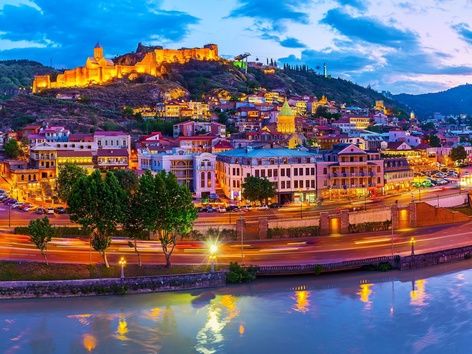
Georgia extends visa-free stay for Ukrainians: details
Georgian authorities have extended the period of visa-free stay for Ukrainians on their territory to two years. Find out more when the new rules come into force
27 Feb. 2023
More details2 min
For refugees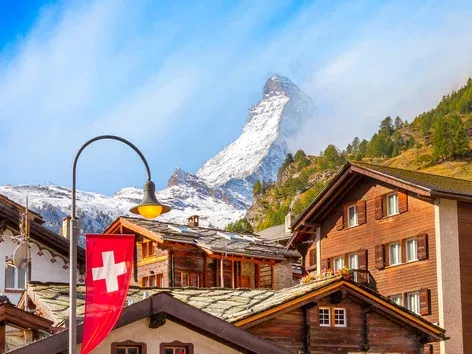
Ukrainians in Switzerland now find it harder to get protection: reasons (updated)
The situation with obtaining protection for Ukrainians in Switzerland is complicated. In particular, the duration of consideration of applications for S status has increased significantly, and the number of refusals has increased significantly in recent months. Find out more about the reasons for this and what refugees from Ukraine can expect in the future
06 Aug. 2024
More details2 min
For refugees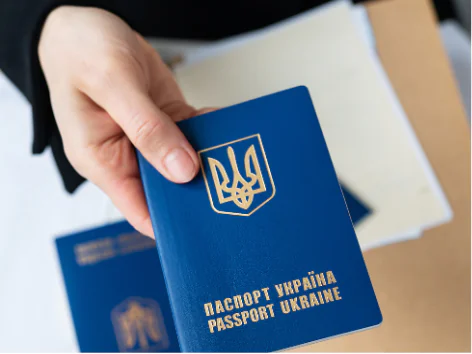
Male Ukrainian citizens abroad have faced restrictions on consular processes. In particular, persons of mobilisation age cannot issue a new passport or pick up an already prepared document. Find out when the Ministry of Foreign Affairs plans to lift these restrictions and what new rules you should prepare for in the future
25 Apr. 2024
More details2 min
Popular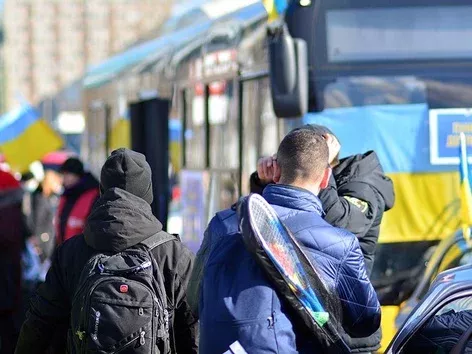
Several countries of the European Union have spoken out about consular restrictions for Ukrainian men. Some say they are ready to allow Ukrainians to stay, while others are ready to facilitate their return. Find out how the countries are divided on this issue
25 Apr. 2024
More details

